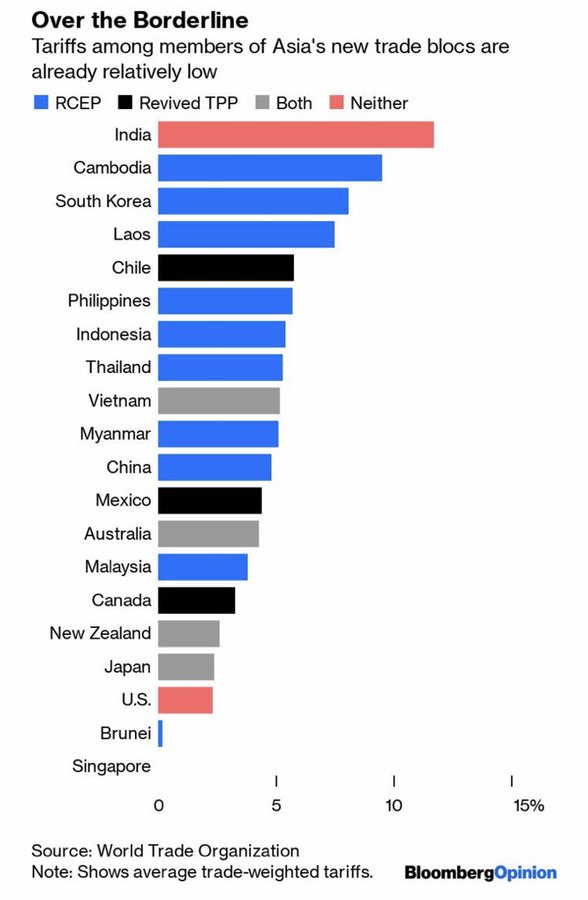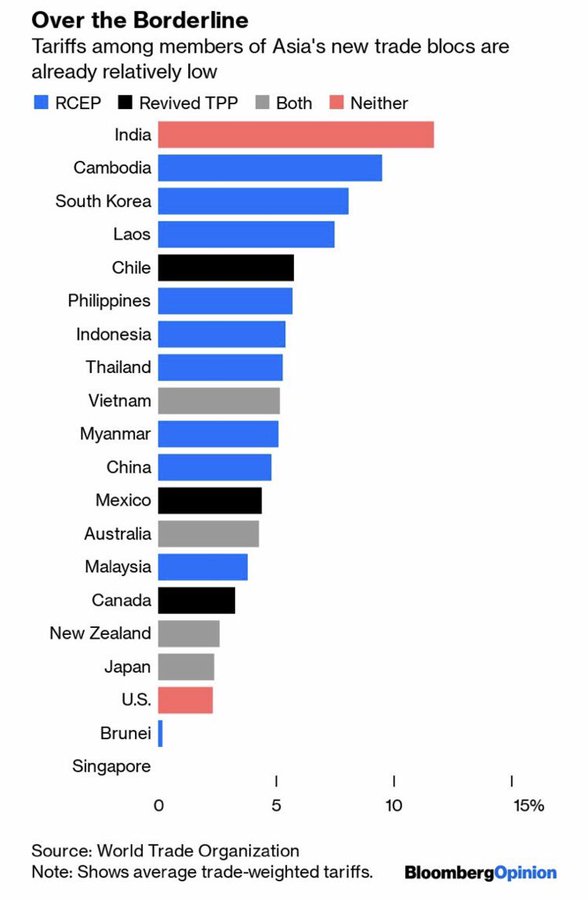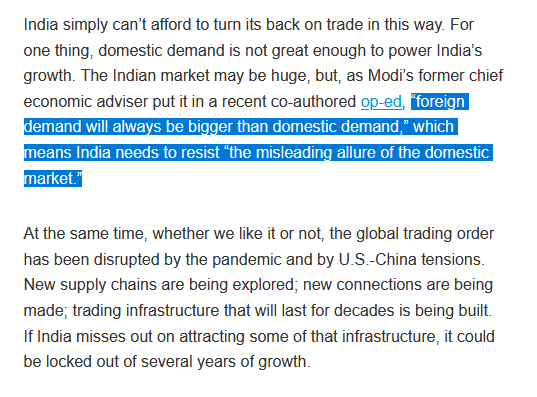As Ruchir Sharma argued in his new book "The 10 Rules of Successful Nations," a country's ascendancy depends in part on its ability to cut trade deals with its neighbours and other nations. In this respect, India seemed to have lost out by staying out of #RCEP signed yesterday.
As can be seen from this @bopinion graph, India and the US are the outliers--both deciding to stay out of RCEP as well as TPP.
This newest trade bloc RCEP (consisting mainly of ASEAN-Pacific nations, like, China, South Korea, Japan, Australia, Indonesia and VIETNAM) is said to be the world's largest--representing one-third world's population and 30% of world's GDP.
RCEP nations >
RCEP nations >
As depicted in the attached image, India's tariffs (WTO data) are the highest in the Asia-Pacific region. So how does India compete with nations that already have much lower tariffs among themselves? (If you ask me: this useless 'self-reliance' slogan is self-defeating).
As we've seen in the past six years, India has been on the path of becoming more 'protectionist' in its approach to global trade, over-protecting inefficient Indian manufacturers.
Here, @mihirssharma argues "This Is No Time for India to Turn Away From Trade" > https://www.bloomberg.com/opinion/articles/2020-11-16/after-rcep-withdrawal-india-shouldn-t-turn-away-from-trade?cmpid%3D=socialflow-twitter-view&utm_campaign=socialflow-organic&utm_content=view&utm_medium=social&utm_source=twitter
Interesting thread on #RCEP > @michaelxpettis > https://twitter.com/michaelxpettis/status/1328252196773900288

 Read on Twitter
Read on Twitter





